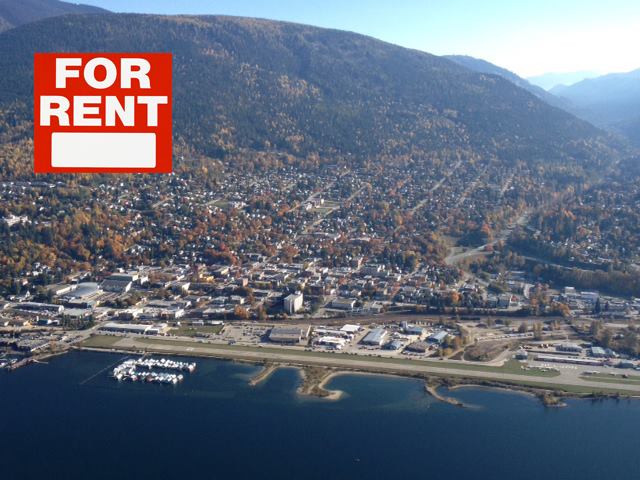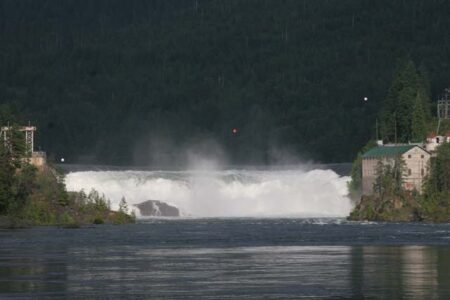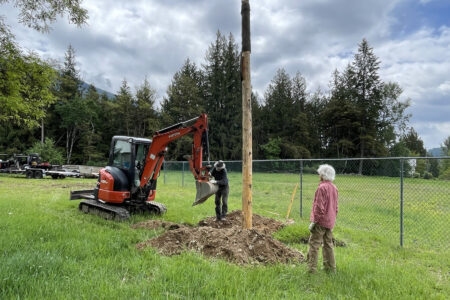The journey down the road to regulating short-term rentals in the city begins
The city is on the short-term track to regulating the short-term rental market as it has begun to assemble a body of legislation to deal with, not ban, the new genre of accommodations.
Although some communities in the province are moving toward banning short-term rentals — not bed and breakfasts — in residential neighbourhoods, Nelson is instead looking to put in place a series of regulations to govern the industry, and legally level the playing field with other accommodation providers.
In all, city council voted Monday at its regular meeting on eight recommendations, with all eight passing, putting in play the machinations of regulations to deal with the proliferation of short-term rentals in the city, and hopefully halt the resulting housing crunch.
For over two months the city has employed a researcher in development services for the sole purpose of examining the gap between city policies and the short-term rental (STR) market.
With an estimated 120 listings in the short-term realm — and up to 40 of them quite active — the majority of them were considered illegal by virtue of the fact they lacked a business licence and were not in compliance with zoning, said city researcher Alex Thumm.
“But it became obvious the city wasn’t in a position to enforce existing regulations in the city,” he told council. “And it’s a very difficult business activity to enforce on and requires resources the city does not have.”
The city stance was it was not necessary to shut down the market, even though many people did not want short-term rentals. Thumm said what research found were ways to mitigate those negative concerns and create a level playing field for all accommodators in Nelson.
“This is a very complex issue,” said Mayor Deb Kozak. “We thought at first we knew what to do, but when you start digging under the surface … you find it isn’t.”
The majority of passion behind the issue has been around the long-term housing question — or the lack thereof — with the key element being providing for the possibility of having short term rentals, said Thumm, and ensuring the city was maximizing potential and opportunity to create purpose-built rentals, and mitigate any rental housing market losses.
“The regulations would hopefully show fairness to home owners and show fairness to neighbours who chose to live in a residential neighbourhood,” said Thumm.
“Did you look at the effect of short-term rentals on the availability of long term rentals, and the perception is it causes the cost of long term rentals to increase?” asked Coun. Robin Cherbo.
“It is a very difficult thing to prove,” Thumm replied, and the city did not have the resources to do it. “But the most common argument from short-term rental operators is that, yes, they were former landlords, but they are never going to go back.”
In terms of what is happening in the City of Nelson it’s really just observations, Thumm pointed out. There are no hard numbers and costs related to the effect of short-term rentals on the long-term rental market in Nelson.
He said in other centres it has shown that as short-term rentals nudge up, when uncontrolled, they have nudged up housing prices.
But, when approved, the proposed amendments should establish a regulatory and licensing framework for the purpose of creating a level playing field for accommodation providers in the city, as well as minimize potential conflicts between the accommodation providers, neighbours and the city.
“We don’t really have concrete, defendable evidence other than anecdotal evidence around the relationship between short-term rentals and housing, at least within the city of Nelson,” Thumm said.
Council approved the bylaw amendments — Business Licence, Zoning and Off-Street Parking Landscape bylaws and the Official Community Plan — for first readings following a full legal review.
As well, council approved the draft Bylaw Enforcement Guiding Policy and the policy would be presented for adoption along with the other bylaws at a future meeting.
Council directed city staff to investigate the provision of free transit service to guests of municipally-licenced accommodators or as an opt-in program for municipally-licenced accommodators.
The city will also investigate waiving fees levied on rental housing providers and the developers of purpose-built rental housing and secondary suites with the goal of “incentivizing” long-term rental housing.
A review will also be conducted of the staffing for bylaw enforcement and business licencing in order to consider increasing staff levels for the 2017 budget. The city’s business licence fees and parking requirements for secondary suites will also be reviewed.
A report on the short-term rental regulations is expected to be delivered by June 30.
The industry has unique nuances, according to data collected on Nelson’s STRs. Most STRs are listed as available for rent for less than 70 per cent of the time; many are much more occasional.
According to a city staff report delivered to council last month, out of 87 Airbnb (short-term rentals) listings reviewed in May, 14 had no reviews. Seventy-seven per cent are entire dwelling units. A number are listed on multiple online platforms.
The research revealed the average nightly rate for an Airbnb in Nelson is $107, well below the average rate in Tofino, Kimberley and Sechelt, and half of that of Revelstoke and Fernie.
If the recommendations are approved, short-term rental business licensing will generate new revenue that can be used to increase general bylaw enforcement capacity, the city staff report noted.
“And significant number of short-term rental operators have indicated their desire to be regulated and licensed,” it read.
The proposed $100 tri-annual inspection matches the building inspector’s current cost recovery charge for inspections.
Proposed regulations
City staff drafted several proposed regulations for the STR market in Nelson, including:
- STRs would be allowed almost everywhere, however city-wide caps and a density cap are proposed in residential areas, in light of general support for this through public consultation (this is intended to maintain the integrity of residential neighbourhoods. Any property owner is free to apply to rezone to commercial, if that is their intention for the property). A density cap would help ease on-street parking competition without requiring new off-street parking to be built at great cost to resident-operators and Nelson’s natural capital;
- Distinguish between rooms for rent (such as a conventional bed and breakfast) and entire dwelling units;
- A new business licence category of up to $800 for a year-round, entire-dwelling unit rental;
- The availability of monthly and summer-only licences to facilitate occasional home sharing and to enable landlords of student housing to create needed summer tourist accommodation supply;
- Year-round licence-holders to contribute to funding tourism marketing;
- Fire safety inspections and a one-time proof-of-insurance requirement;
- Allow for the short-term rental of multifamily building units for the first time, provided that the property owner/manager or strata council has no objection;
- A principal residency requirement, supported by public consultations; applicants must demonstrate that the property is their principal residence. A new zone is proposed to allow for the possibility of a non-resident property owner to rezone a secondary residence for STR purposes. Nelson already requires potential B&Bs outside of commercial areas to rezone if they wish to have more than two guest rooms;
- Initial priority to existing STRs and bed and breakfast’s, but licencing requirements will still be obligatory.
- A process to revoke a licence in the case of a problematic STR.
- An online, publicly-accessible directory of all licenced short-term rentals and their 24/7 contact.
And furthermore
A number of changes to recommendation have been made since staff last reported to council, including:
- Collecting the contribution to tourism marketing directly as a tourism fee;
- Spreading the cost of tri-annual building inspections over each year instead of charging a fee once every three years;
- Allowing the licence inspector to grant conditional approval to an STR prior to inspection, which will let complying STRs begin operating legally sooner and spread out the workload of the inspector;
- The proof of insurance requirement has been removed as a licence requirement based on legal advice that the city does not face a liability risk, however the city will recommend that STR applicants obtain the appropriate insurance and the city will work with insurance brokers to ensure that insurance information is readily available;
- Reduced STR parking requirements; and
- Allowing those who held a bed and breakfast business licence in 2016 to continue to pay the same licence fee, with an additional $30 fee for the new requirement for tri-annual inspections.
Once adopted, the new regulations will allow for the issuance of STR licences beginning in 2017.

























